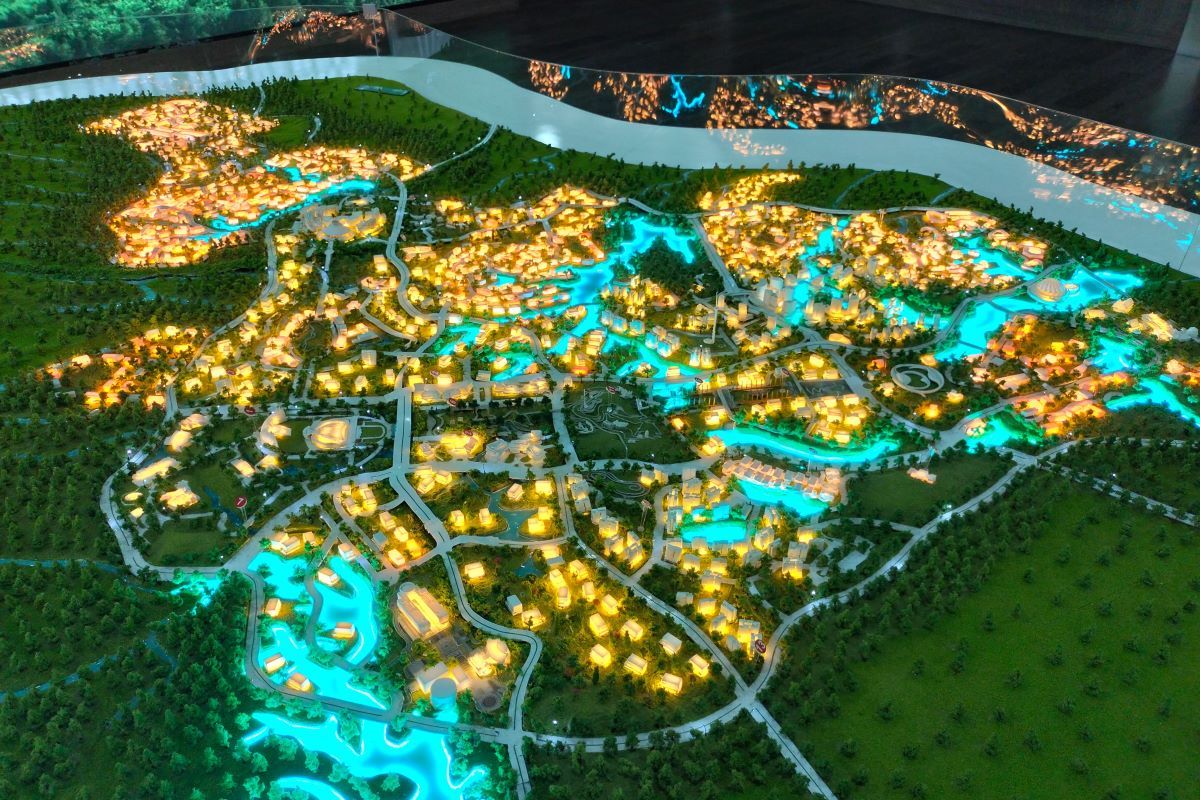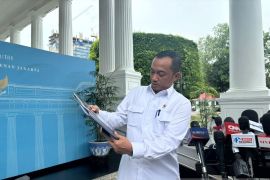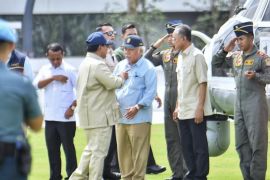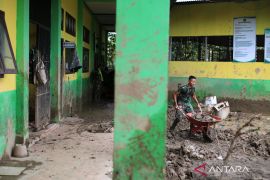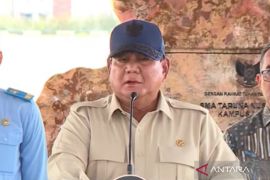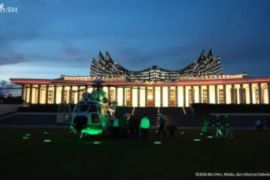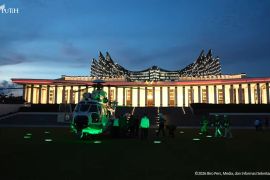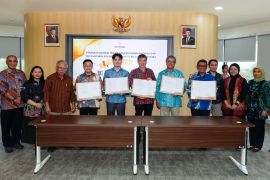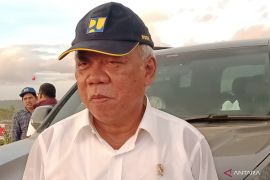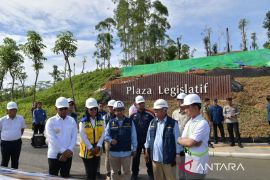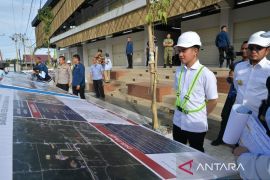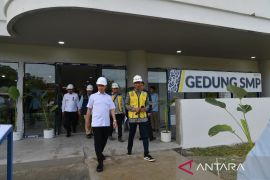The 2015-2085 Indonesian Dream emphasizes the importance of this country's human resources, whose intelligence surpasses that of other nations, and the need for Indonesia to become a barometer of world economic growth.
These are then followed up by the 2045 Golden Indonesia Vision that highlights human development, mastery of science and technology, and sustainable economic development.
The emphasis on the aspects of human resources and sustainable development is in line with the challenges of world megatrends towards 2045, especially those related to the rapid progress of technology and digital talents at the global level.
Indeed, Indonesia is still quite left behind in the digitalization sector. This can be seen in Indonesia's need for digital talent, which is estimated at nine million by 2035, with 600 thousand digital talents needed to be created per year, while the government is currently only able to produce around 200 thousand to 400 thousand digital talents per year.
This, of course, results in a mismatch in the link and match of the information technology sector, as business players and employers encounter difficulty in finding local human resources having digital competence.
Apart from that, the other challenge is the phenomenon of digital nomads, or digital talents, who can work flexibly and online from anywhere and even from abroad by utilizing digital technology.
The challenges of digitalization are what the presence of smart cities seeks to answer. Developing Nusantara as a smart city is one of the development principles, with the aim of emphasizing the development of the new capital as a city that is dynamic, inclusive, supported by the community, and ready to face the future.
Related news: Digitization vital for achieving 2045 economic transformation goal
Preparing digital talents
One of the domains of the Nusantara smart city is the Smart Industry and Human Resources concept, which highlights the use of technology in the development of industries and human resources.
The integration of technology from upstream to downstream in the domain of Smart Industry and Human Resources is a main foundation. In terms of human resources, the upskilling approach is a basis for preparing a workforce that is ready to face continuous evolution in the world of industry.
This means the Nusantara smart city has a goal of preparing human resources who have international-level quality, especially digital talents. With the presence of the smart city, the younger generation does not only study but can also directly practice what they have learned in Nusantara.
Later, digital talents, who are prepared in the Nusantara smart city, will not only fill job positions in Nusantara but also potentially be sought by business players in cities around Nusantara, Kalimantan, or even at the national and global levels.
The preparation of digital talents through Nusantara as a smart city can serve as a solution to tackle the issue of the missing link between the world of industry and the world of education, which will help new business players, especially those engaged in the information technology sector, to meet their needs for digital talents.
Related news: Govt looking to create 100,000 digital talents in 2024
MSMEs digitalization
In addition to supporting the improvement of national digital talents’ competence, Nusantara’s smart city concept also supports the digitalization of micro, small, and medium enterprises (MSMEs) to be able to compete and make Nusantara a new center of economic growth.
The Digital Platform for Small-Medium Enterprises (SMEs) sub-domain covers special technological infrastructures, such as digital platforms, to help small and medium enterprises (SMEs) in their operational, marketing, selling, and management activities digitally.
Digital platforms in Nusantara smart city play a role in helping MSME players carry out sales activities digitally, promote their businesses, disburse incentives, and carry out training.
In addition, there is a data analysis dashboard platform regarding the logistics supply chain and the latest market information. This platform plays a role in helping MSMEs manage stocks and raw material needs and enables them to easily find market trends or products that consumers are currently interested in.
Those platforms are prepared in Nusantara smart city, considering that the government is highly supportive of the presence of MSMEs in Nusantara, as reflected by the provision of various types of ease and incentives. This is because MSMEs are the backbone and the main supporter of Indonesia’s economy.
Moreover, efforts to digitize MSMEs through the Nusantara smart city are also in line with the current global trend where trade is no longer dominated by large-scale business actors through conventional trade but tends to be dominated by MSME players through online commerce using e-commerce and social media.
Related news: Digitalization will encourage MSMEs to expand market: minister
Smart city reference
The main goal of the Nusantara smart city concept is to make it a reference for the development of ideal smart cities in accordance with the mandate of the 2025-2045 National Long-Term Development Plan (RPJPN).
It is not only targeted to become a main reference for smart city development across Indonesia but also for other cities in the world.
One of the innovations that serve as the foundation to realize the goal is the implementation of the multi-utility tunnel (MUT) technology.
MUT is an infrastructure technology that can accommodate not only utility networks, such as gas, electricity, and piping, but also internet cable networks with neat arrangement.
Apart from that, MUT is equipped with monitoring system technology that is integrated with Nusantara’s command center, so that it can detect the locations of damage that need to be repaired in detail and without disturbing other utility networks.
The development of Nusantara as a smart city is indeed not merely aimed at relocating Indonesia’s capital city from Jakarta to Kalimantan or building infrastructures.
With the preparation of competent and reliable digital talents, MSMEs digitalization, and making Nusantara a reference for smart city development, it can be interpreted that the development of Nusantara as a smart city is Indonesia’s strategy to build power in the digital sector in accordance with the 2015-2085 goal, namely having human resources that are excellent at an international level and making Indonesia a barometer of world economic growth, especially in the digital sector.
Related news: Nusantara smart city designed to respond to citizens' needs: OIKN
Editor: Yuni Arisandy Sinaga
Copyright © ANTARA 2024
